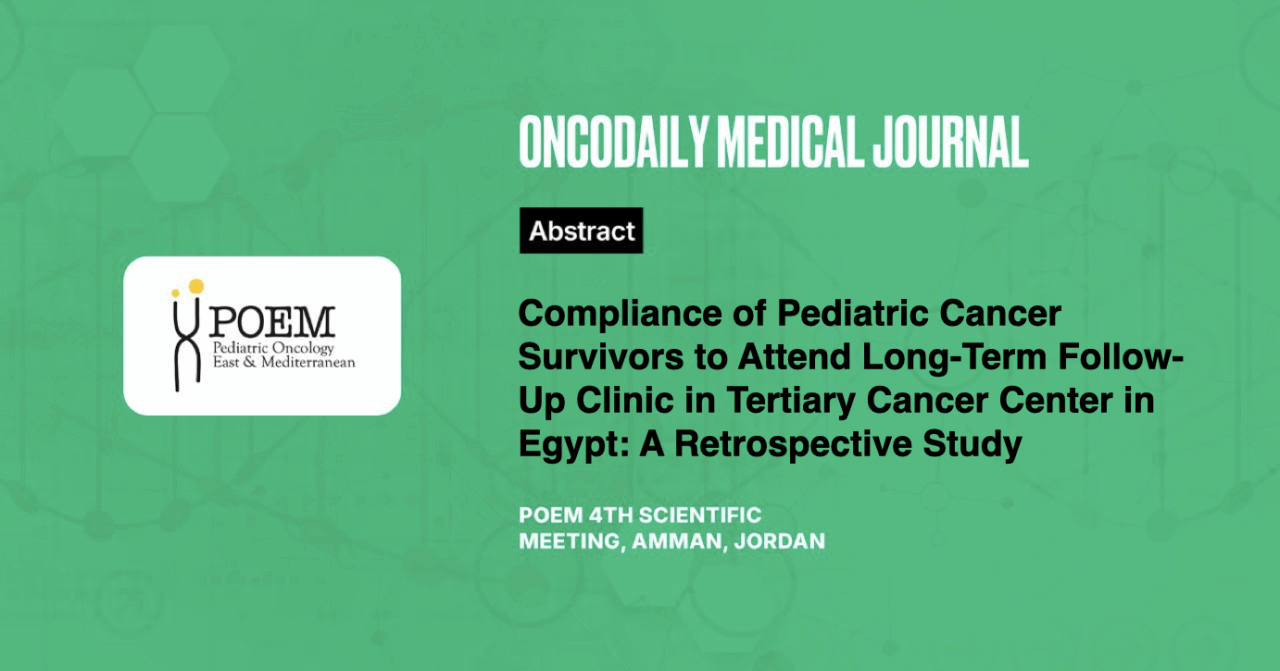Compliance of Pediatric Cancer Survivors to Attend Long-Term Follow-Up Clinic in Tertiary Cancer Center in Egypt: A Retrospective Study
Abstract
Introduction: Current treatment protocols have significantly improved the 5-year survival rate for childhood cancers. Our study aims to describe the adherence of survivors in the South Egypt Cancer Institute to transition from oncology care to survivorship care and non-adherence risk factors.
Methodology: Medical charts of patients in the Pediatric Long-Term Follow-Up (LTFU) Clinic at South Egypt Cancer Institute, Assiut University, were reviewed from 2015 to 2022 and compared with patients who finished treatment between 2014 and 2021 and didn’t attend the LTFU clinic. Records were reviewed for the number of LTFU clinic attendants, demographic data, logistic data, and medical factors.
Results: We found that LTFU Clinic attendants during the study period were 405 (38.6%) out of 1050 finished treatment from 2014 to 2021. Median age of survivors was 8 years (8 months- 22 years). LTFU attendants included 285 (70.4%) with hematological malignancies. Educated parents were 283 (70%) with 44 (15.7%) had university degrees. Multivariate logistic regression showed that older age, unemployed parents, and living more than 100 km from the hospital were significantly related to non-attendance to the LTFU clinic.
Conclusion: We concluded that programs need to be established in developing countries to improve survivors’ adherence to transitioning from oncology care to survivorship care.





